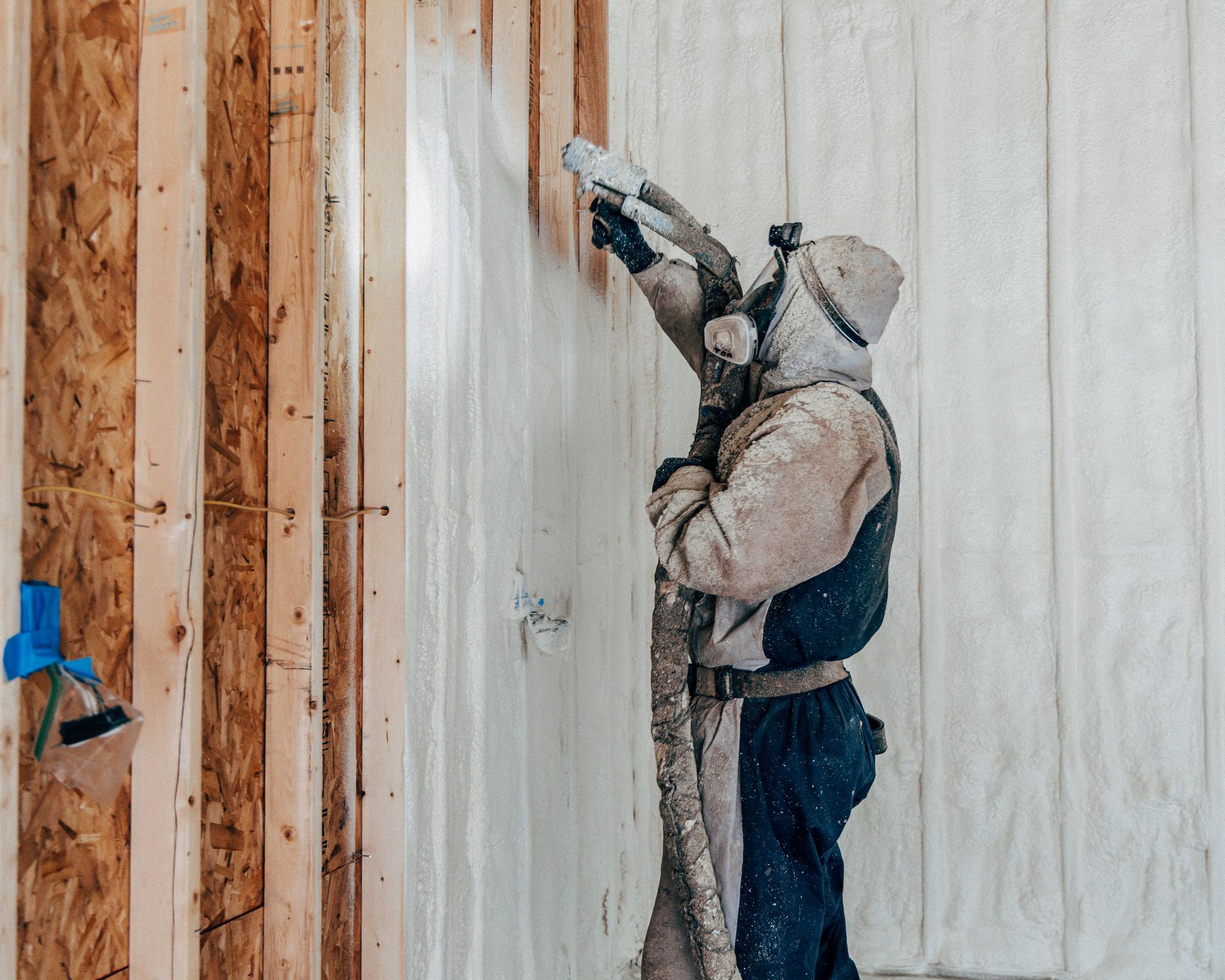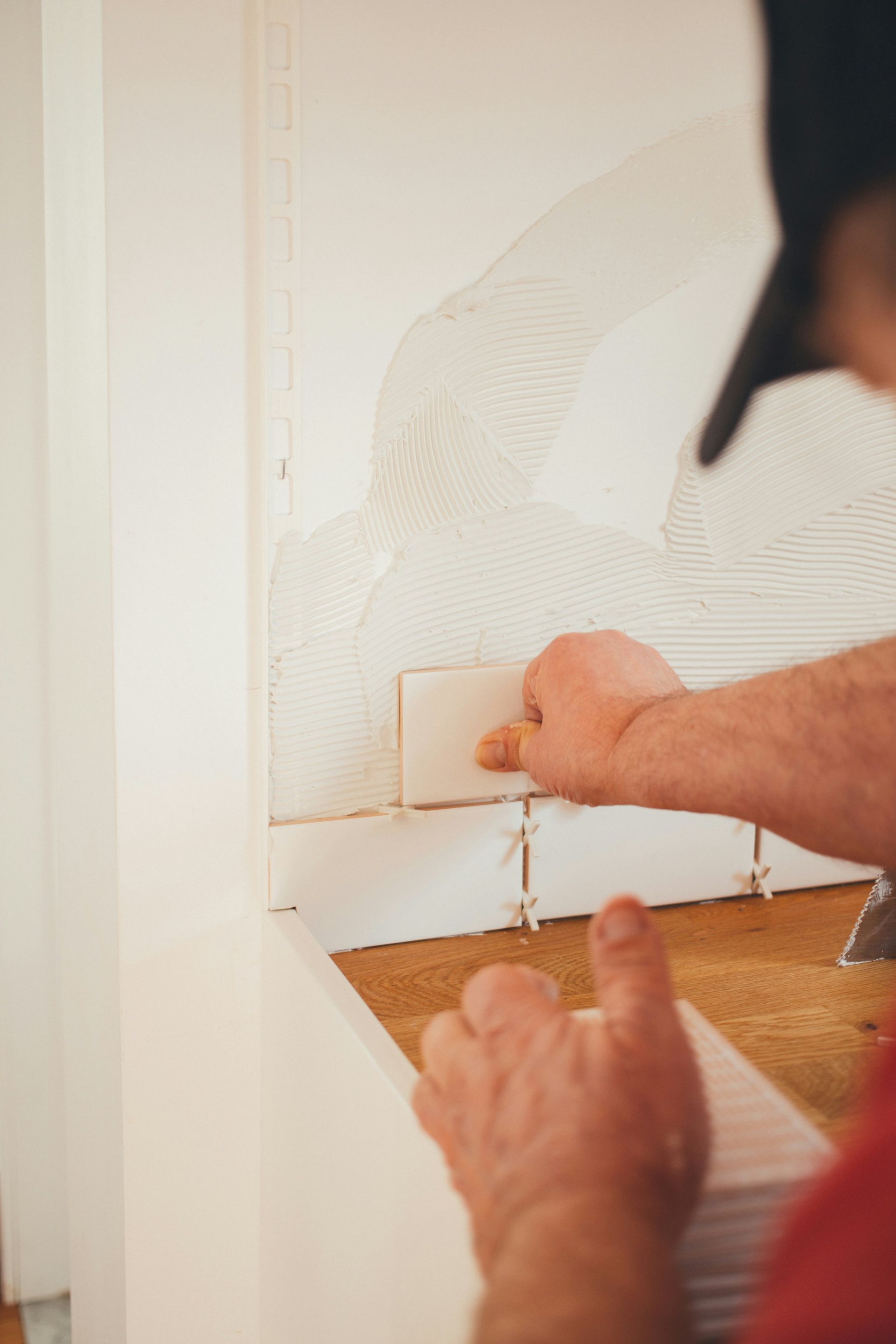Improving Your Home’s Air Quality with Spray Foam Insulation

Indoor air quality affects our health, with poor air potentially leading to issues ranging from mildew growth to more serious concerns like cancer. Spray foam insulation can significantly improve air quality by reducing the entry of pollutants and allergens into living spaces. The Occupational Safety and Health Administration recognizes the importance of proper insulation in maintaining a healthy indoor environment, especially in areas like attics where air circulation is crucial. While some may worry about outgassing from spray foam, modern formulations have minimal emissions when properly installed.
This article will explore how spray foam insulation contributes to better indoor air quality and a healthier home environment.
Key Takeaways
- Spray foam insulation creates an airtight barrier that blocks allergens, pollutants, and moisture
- It effectively prevents mold and mildew growth by controlling water vapor and moisture
- Spray foam reduces VOCs in homes, improving indoor air quality and protecting occupants’ health
- It enhances temperature control and sound insulation, contributing to overall home comfort
- Long-term benefits include reduced carbon emissions and improved air quality over time
Spray Foam Means Better Indoor Air Quality

Spray foam insulation stands out as a powerful solution for enhancing indoor air quality. By creating an airtight seal, this innovative material tackles common air quality issues head-on. It minimizes the intrusion of allergens, pollens, and dust, while also preventing mold and mildew growth in areas like crawl spaces. The reduction of volatile organic compounds (VOCs) further contributes to a healthier living environment. Beyond air purification, spray foam offers enhanced temperature control and sound insulation, leading to long-term benefits for overall home comfort.
Unlike traditional advertising claims, the advantages of spray foam for indoor air quality are backed by scientific evidence and practical application.
Spray Foam Creates an Airtight Seal
Spray foam insulation creates an airtight seal that significantly reduces the risk of harmful substances entering the home. This barrier blocks formaldehyde, smoke, and other airborne pollutants from infiltrating living spaces. While some may picture installers in hazmat suits, modern spray foam applications follow strict safety guidelines recommended by green building advisors to ensure a clean and healthy installation process.
Minimized Allergens and Pollens
Spray foam insulation creates a robust building envelope that significantly reduces the entry of allergens and pollens into indoor spaces. This airtight barrier, supported by principles of building science, effectively blocks common pollutants and helps maintain cleaner air within the home. As a result, residents may experience fewer allergy symptoms and odor issues, potentially reducing the need for additional air purification devices like dehumidifiers.
Mold and Mildew Prevention
Spray foam insulation effectively prevents mold and mildew growth by controlling water vapor and moisture. The polyol component in spray foam creates a barrier that stops leaks and prevents moisture from penetrating walls and other structures. This protection extends to crawl spaces and basements, where moisture-related issues often begin, safeguarding the home’s structure and the health of its occupants’ skin and respiratory systems.
| Benefit | How Spray Foam Helps |
|---|---|
| Mold Prevention | Controls moisture barrier |
| Leak Protection | Seals potential entry points |
| Moisture Control | Regulates humidity levels |
Reduced Volatile Organic Compounds (VOCs)
Spray foam insulation significantly reduces Volatile Organic Compounds (VOCs) in homes, improving indoor air quality and protecting occupants’ health. Unlike traditional fiberglass insulation, spray foam creates a tight seal that prevents air pollution from entering living spaces. This environmental protection measure aligns with recommendations from health experts, who stress the importance of minimizing exposure to harmful chemicals in indoor environments.
Enhanced Temperature Control
Spray foam insulation enhances temperature control in homes, leading to improved indoor air quality. The airtight seal created by spray foam prevents air leaks through the ceiling and walls, reducing the workload on ventilators and HVAC systems. This efficient temperature regulation improves comfort and contributes to better occupational safety and health by maintaining consistent indoor temperatures. Additionally, spray foam’s waterproofing properties protect against moisture-related issues, which can be identified during routine inspections.
Sound Insulation
Spray foam insulation improves sound insulation in homes, contributing to better indoor air quality and overall comfort. The chemical reaction during application creates a dense barrier that effectively absorbs and blocks noise, outperforming traditional materials like cellulose. While some spray foam products contain flame retardants, manufacturers adhere to strict terms of service to ensure safety and performance.
- Creates a dense sound barrier
- Absorbs and blocks noise
- Outperforms traditional insulation materials
- Enhances overall home comfort
- Adheres to safety standards
Long-Term Benefits for Indoor Air Quality
Spray foam insulation offers long-term benefits for indoor air quality by reducing carbon emissions and energy consumption. The airtight seal created by spray foam prevents the infiltration of asbestos fibers and other harmful particles, potentially lowering the risk of asthma and respiratory issues. Data shows that homes with spray foam insulation maintain better air quality over time, providing a healthier living environment for occupants.
Conclusion
Spray foam insulation significantly enhances indoor air quality by creating an airtight seal that blocks allergens, pollutants, and moisture. It prevents mold growth, reduces VOCs, and improves temperature control, leading to a healthier living environment. The long-term benefits include reduced carbon emissions, energy savings, and potentially lowered risk of respiratory issues. By choosing spray foam insulation, homeowners invest in cleaner air and improved overall comfort for years to come.
Recent Posts
Learn More About
Mammoth Home Renovations
Serving the Fox Cities area of Wisconsin, Mammoth Home Renovations specializes in insulation services and exterior and interior remodeling. One-stop-shop for home renovations. Quick-to-act discount. Financing available. Call or text for a free estimate.
LIFEST 2024 SPONSOR







Share On: